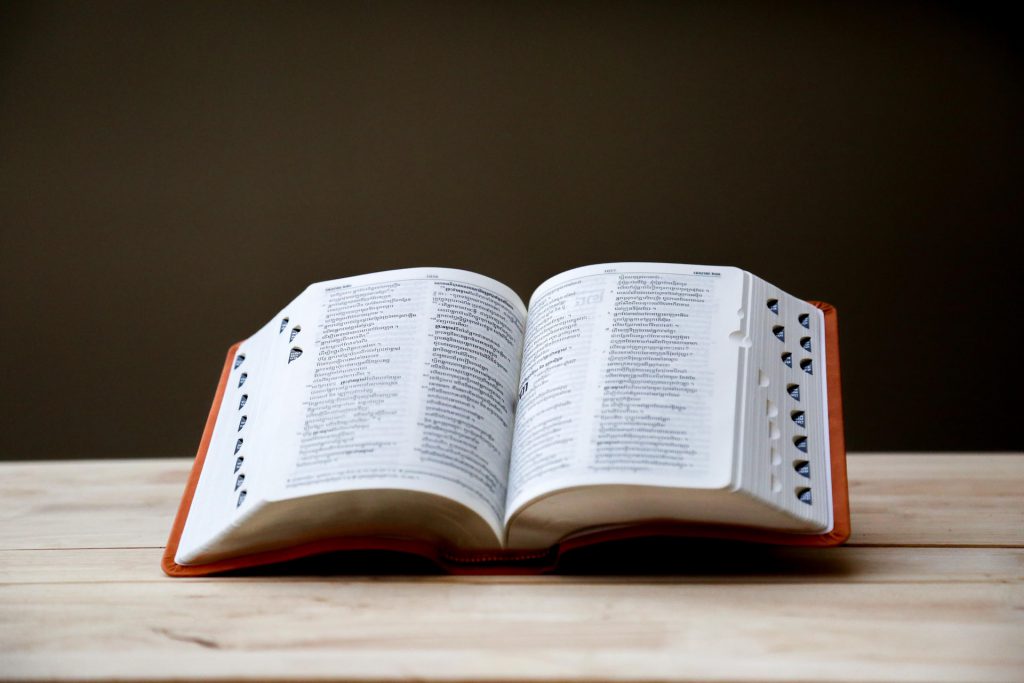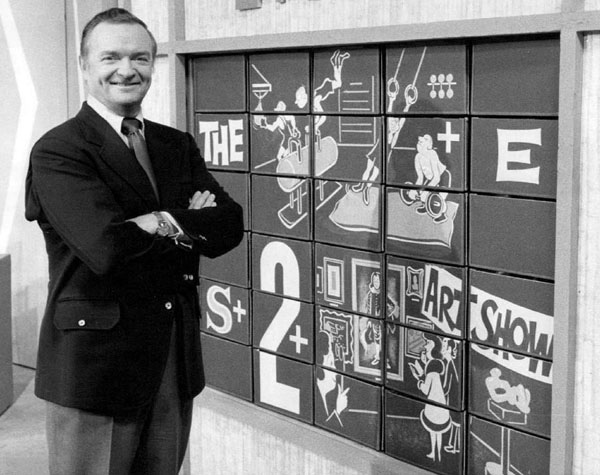Six Cromulent Made-Up Words to Enrich Your Vocabulary
Forget flash cards for a minute–learning words can actually be fun. See, the great thing about the English language is just how flexible, fanciful, adaptable, and extendable it is. Individual words evolve with use, kind of like Pokémon. The entirety of vocabulary gets bigger when it needs to, kind of like a Pokémon deck with an expansion pack. And when writers can’t quite capture the correct word in the wild, they concoct one with syllables from other, older words…kind of like how Pokémon scientists built Mewtwo.
Seriously, and video-game metaphors aside, new words (or neologisms, for those without an Orwellian avoidance of all things non Anglo-Saxon) are a whole bunch of fun (kind of like…never mind). Here’s a few choice coinages from literature and beyond to embiggen your vocabulary.
Cromulent (adj.)—Acceptable, useful, satisfactory.
Mrs. Krabappel: Embiggens? I never heard that word before moving to Springfield.
Miss Hoover: I don’t know why, it’s a perfectly cromulent word.
In 2007, University of Pennsylvania linguistic scholar Mark Liberman mused that The Simpsons has supplanted both Shakespeare and the Bible as “our culture’s greatest source of idioms.” Anyone who’s ever uttered “d’oh!” or “meh” is bound to agree—but the best made-up words of TV’s favorite yellowbellied family transcend mere monosyllables. In season seven, episode sixteen (“Lisa the Iconoclast,”) the sallow-skinned Springfieldians declare that the dubious main verb of their metropolitan motto (“embiggens”) isn’t, in fact, made-up by means of…another made-up word. Questionable? Maybe. Clever? Definitely. And with some ex post facto academic approval of The Simpsons’s canoncity (it’s practically Shakespeare!) the word is now, well…cromulent.

Frindle (n.)—A pen.
“Who says dog means dog?”
If there’s room on your shelf for only one book about the national frenzy surrounding schoolchildren who rename office supplies, then make it Andrew Clements’s Frindle. When protagonist Nick Allen decides to call a pen a frindle, the stylus’s stylish new name sets off a chain reaction from his classroom to the whole country. Kids love frindles, and teachers…not so much. While the word frindle hasn’t really caught on in the extranarrative world, the story is a terrific tale of the fun and power of a living language. And what kid wouldn’t relish driving his teacher crazy by doing what she told him: using his words?

Chortle (n.)—A joyful, somewhat muffled laugh
O frabjous day! Callooh! Callay!”
He chortled in his joy.
Like Shakespeare and Milton before him, Lewis Carroll never let a little thing like what’s actually printed in a dictionary stop him from picking the perfect word. But while Will’s and John’s neologisms are, at this point, familiar enough to be practically paleologisms, Lewis’s weird and inventive poem “Jabberwocky” and its quickly quipped coinages are still considered delightful, irreverent, and nonsensical. But while we may not talk about slithy toves galumphing about in everyday parlance, we’re perfectly content to describe that half-chuckle, half-snort utterance with Carroll’s port-man-tastic onomatopoeia chortle.

Runcible (adj.)—(Of a spoon) 1. Possessing a serrated edge (as for grapefruit consumption); 2. Two-ended (as for measuring); 3. Pronged and pointed (see spork)
The Dolomphious Duck,
who caught Spotted Frogs for her dinner
with a Runcible Spoon
The poet Edward Lear wasn’t one to be finicky with definitions. His satisfying-sounding nonsense adjective appears most famously in his ode to interspecies friendship, The Owl and the Pussycat, as the runcible spoon, but Lear also applied the modifier to everything from hats to geese to walls in other works. What any of these objects has in common with its runcible fellows is anyone’s guess—and guess people have, imputing enough attributes to runcible silverware to build a veritable Swiss-army spoon of features. Despite its absurd and meaningless meaning, runcible spoons have turned up in post-Lear literature from Thomas Pynchon to Lemony Snicket to Evelyn Waugh.

Grok (v.)—To really, really, really understand someone’s thinking.
Grok means to understand so thoroughly that the observer becomes a part of the observed—to merge, blend, intermarry, lose identity in group experience. It means almost everything that we mean by religion, philosophy, and science—and it means as little to us (because of our Earthling assumptions) as color means to a blind man.
Duuuuude. The groovy get-to-know-you that Robert A. Heinlein imagines in his 1961 Stranger in a Strange Land picks up where “can you dig it?” leaves off and then some. The Vulcan-style mind-meld of grokking was, unsurprisingly, tuned-into and turned-on by ‘60s counterculturals, and the word shows up everywhere from Volkwagen repair manuals to The Electric Kool-Aid Acid Test. If the blurring of the subject-object distinction trips the light a little too fantastic for your tastes, you can see the word in action in the less LCD-laced lexicons of Star Trek, Futurama, and Adventure Time. Grok that?

Frood (n.)—A really amazingly together guy (see hoopy).
“Hey you, sass that hoopy Ford Prefect? There’s a frood who really knows where his towel is!”
Douglas Adams’s Hitchhiker’s Guide to the Galaxy provided humankind with many handy tips and tricks (not to mention cocktail recipes) for interstellar travel, but also hipped us humans to the slang of the star-sailors we’re bound to encounter on our voyages (presumably so that we sound cool while chatting over Pan-Galactic Gargle Blasters). We can learn the adjective hoopy (an extreme form of cool) and the verb sass (a less-extreme form of grok), but it takes a real frood to throw these words around with flair. And since Ford Prefect, the cosmically cosmopolitan researcher for the titular Guide, serves as a yardstick for the term, frood-itude is probably out of reach for us Arthur Dent-like normals. Less out of reach, fortunately, is the humble-yet-hoopy towel (and never leave home without it!)

Blair Thornburgh
BLAIR THORNBURGH is a graduate of the University of Chicago, where she earned a B.A. in medieval studies and delivered a pretty good commencement speech. She lives in Philadelphia.



